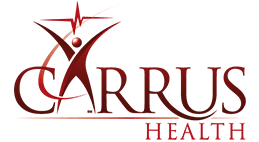 The brain is the command center of your body. It controls and regulates every necessary process for you to function normally. The brain, just like any other organ, is vulnerable to injury and damage. Traumatic brain injury (TBI) results from an external force to the head, such as a blow, bump, or when an object penetrates the skull.
The brain is the command center of your body. It controls and regulates every necessary process for you to function normally. The brain, just like any other organ, is vulnerable to injury and damage. Traumatic brain injury (TBI) results from an external force to the head, such as a blow, bump, or when an object penetrates the skull.
Because recovery depends on the initial response to a head injury, it is essential to act swiftly by seeking medical care to prevent long-term damage.
Initial Response
A head injury or concussion warrants a visit to the emergency room, so immediately call for medical assistance. The goal of emergency response is to prevent more damage from occurring.
Recognizing a serious head injury and providing first aid treatment can save your life. Look out for symptoms such as the following:
- Loss of consciousness
- Vomiting more than once
- Developing a stiff neck
- Headache
- Seizure
- Sleepiness
- Speaking incomprehensibly
Stabilizing the patient’s condition is the number one priority; you can do this by ensuring adequate blood flow and proper oxygen supply to the brain and body. Perform rescue breathing and CPR if necessary.
If the injured person’s heart rate and breathing are normal, a head injury is treated similarly to a spinal injury. Before help arrives, acquaintances or witnesses to the injury must remember to keep the patient still. The head should be kept stable and in line with the spine. If the injured person is wearing a helmet, don’t remove it. Likewise, don’t try to remove any object sticking out of the wound. Early mobilization and unnecessary movement can cause an unintended neck injury.
It is also essential to maintain normal or slightly elevated blood pressure. Stop the bleeding by applying pressure on the wound using a clean cloth. However, if there is a suspected fracture, remember not to apply direct pressure to the bleeding site.
In case the injured person begins to vomit, roll their body, neck, and head to the side to prevent choking.
Assessment of the Injury
After patient stabilization, assessing and diagnosing the head injury are central to formulating a treatment plan. For instance, different concussion grades mean different levels of damage, treatment, and recovery.
Emergency health care providers use imaging tests to determine the diagnosis and prognosis of the patient. Neck and skull X-rays can spot fractures or instability in mild to moderate head injuries. Meanwhile, a CT scan is used for moderate to severe injuries. It gives a detailed view of the brain’s anatomy, enabling emergency responders to locate skull fractures, bleeding, clots, bruising, and swelling of brain tissue.
Treatment Plan for Head Injuries
Patients with mild injuries are typically recommended to take pain relievers and rest. Nonetheless, mild injuries require continuous monitoring and follow-up to ensure there are no persisting symptoms or complications.
Moderate to severe injuries require much more intensive treatment and follow-up. Additional treatments to avoid secondary damage from bleeding, inflammation, or reduced oxygen supply in the brain may be necessary.
Physicians may prescribe diuretics and anti-seizure drugs. In some instances, surgery may be necessary to control internal bleeding, remove blood clots, and repair skull fractures.
Patients with a significant head injury may have lasting damage and even need to relearn basic skills. Thus, rehabilitation, with the help of various specialists, is also vital in the recovery process. This will be tailored to the patient’s needs and may cover various areas such as physical and occupational therapy, speech therapy, and psychology.
Head Injury Emergency Care in Richmond, Texas
Head injuries may be life-threatening. First aid is crucial for all patients with a head injury. It prevents more damage from occurring and can save a life. The most appropriate treatment plan can only be formulated after the assessment of the injury. Mild injuries require no more than pain relievers, rest, and follow-up. However, moderate and severe injuries often need additional treatment, surgery, and rehabilitation to regain normal functioning.
For patients with a head injury, Carrus Care ER is ready to assist you. We treat patients of all ages, and our emergency medical team is equipped to offer a full range of medical healthcare services to treat you.
We are here for your emergency needs. You may visit us in Richmond, Texas, or call Carrus Health’s emergency facility at (832) 791-2891.
